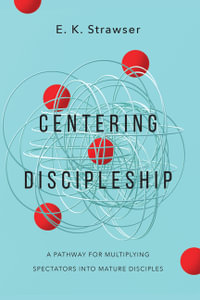
At a Glance
Paperback
$72.80
or
Aims to ship in 10 to 15 business days
ISBN: 9780809130931
ISBN-10: 0809130939
Series: Classics of Western Spirituality (Paperback)
Published: 1st January 1989
Format: Paperback
Language: English
Number of Pages: 496
Audience: General Adult
Publisher: PAULIST PR
Country of Publication: US
Dimensions (cm): 22.61 x 15.24 x 3.3
Weight (kg): 0.79
Shipping
| Standard Shipping | Express Shipping | |
|---|---|---|
| Metro postcodes: | $9.99 | $14.95 |
| Regional postcodes: | $9.99 | $14.95 |
| Rural postcodes: | $9.99 | $14.95 |
How to return your order
At Booktopia, we offer hassle-free returns in accordance with our returns policy. If you wish to return an item, please get in touch with Booktopia Customer Care.
Additional postage charges may be applicable.
Defective items
If there is a problem with any of the items received for your order then the Booktopia Customer Care team is ready to assist you.
For more info please visit our Help Centre.
You Can Find This Book In
This product is categorised by
- Non-FictionReligion & BeliefsAspects of Religion for Non-ChristiansReligious Institutions & Organisations
- Non-FictionReligion & BeliefsChristianityChristian Churches, Denominations, GroupsRoman Catholicism
- Non-FictionReligion & BeliefsChristianityChristian Liturgy, Prayerbooks & HymnalsChristian Hymns & Hymnals
- Non-FictionArts & EntertainmentMusicMusic Styles & GenresSacred & Religious Music
- Non-FictionReligion & BeliefsReligion
- Non-FictionReligion & BeliefsAspects of Religion for Non-ChristiansTheology























